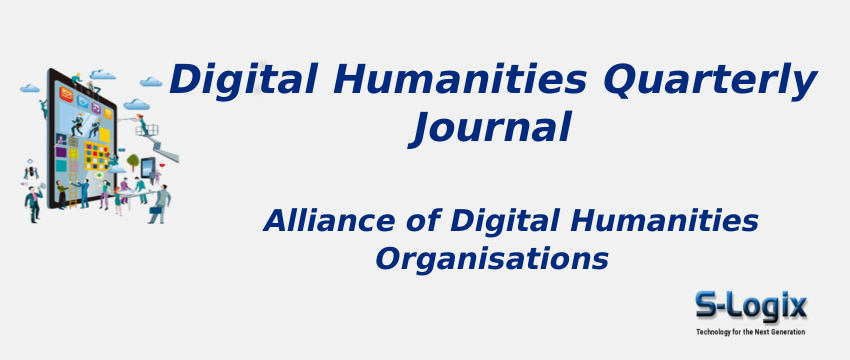Journal Home: Journal Homepage
Editor-in-Chief:
Print ISSN: 19384122
Electronic ISSN:
Abstracting and Indexing: Scopus
Imapct Factor :
Subject Area and Category: Arts and Humanities, Arts and Humanities (miscellaneous), Computer Science, Computer Networks and Communications, Social Sciences, Communication, Library and Information Sciences
Publication Frequency:
H Index: 13
Q1:
Q2: Arts and Humanities (miscellaneous)
Q3:
Q4:
Cite Score: 1.4
SNIP: 0.778
Journal Rank(SJR): 0.270
Latest Articles: Latest Articles in Digital Humanities Quarterly
Guidelines for Authors: Digital Humanities Quarterly Author Guidelines
Paper Submissions: Paper Submissions in Digital Humanities Quarterly
Publisher: Alliance of Digital Humanities Organisations
Country: United States
